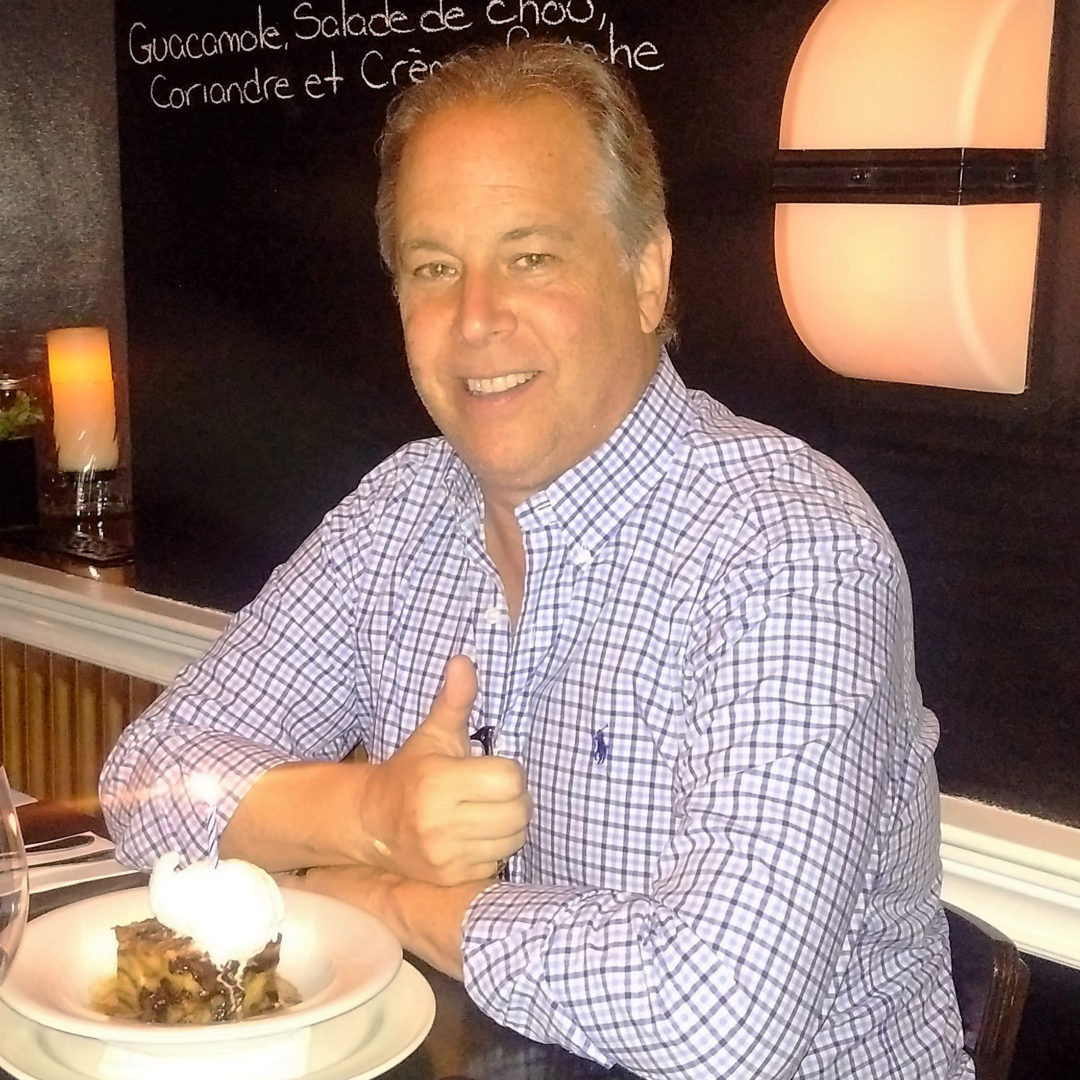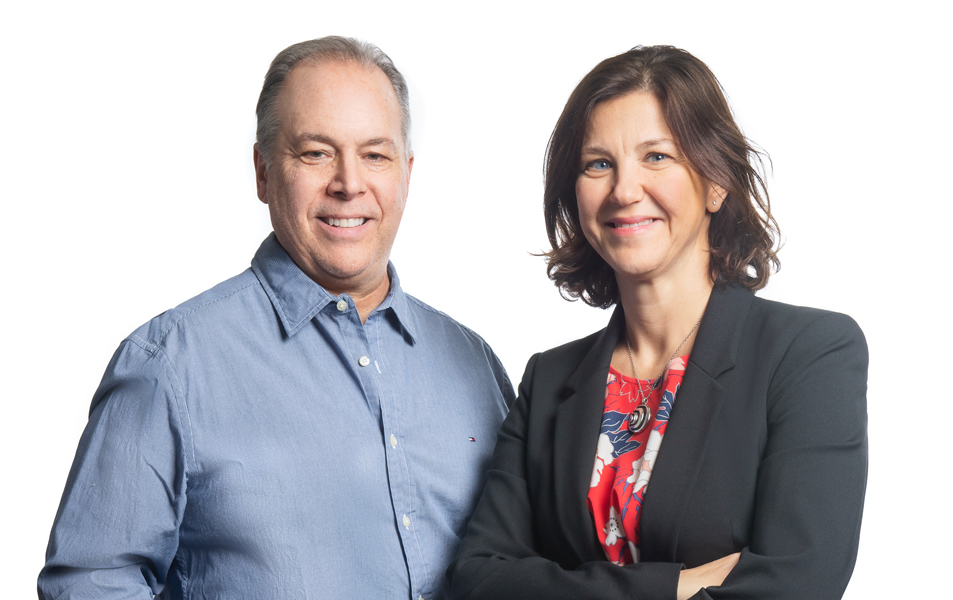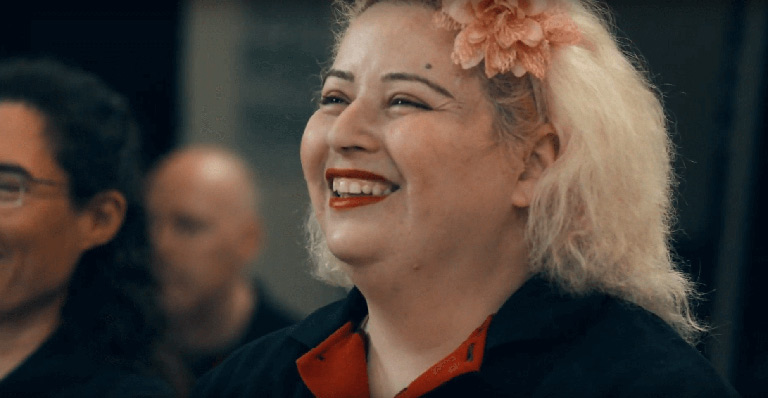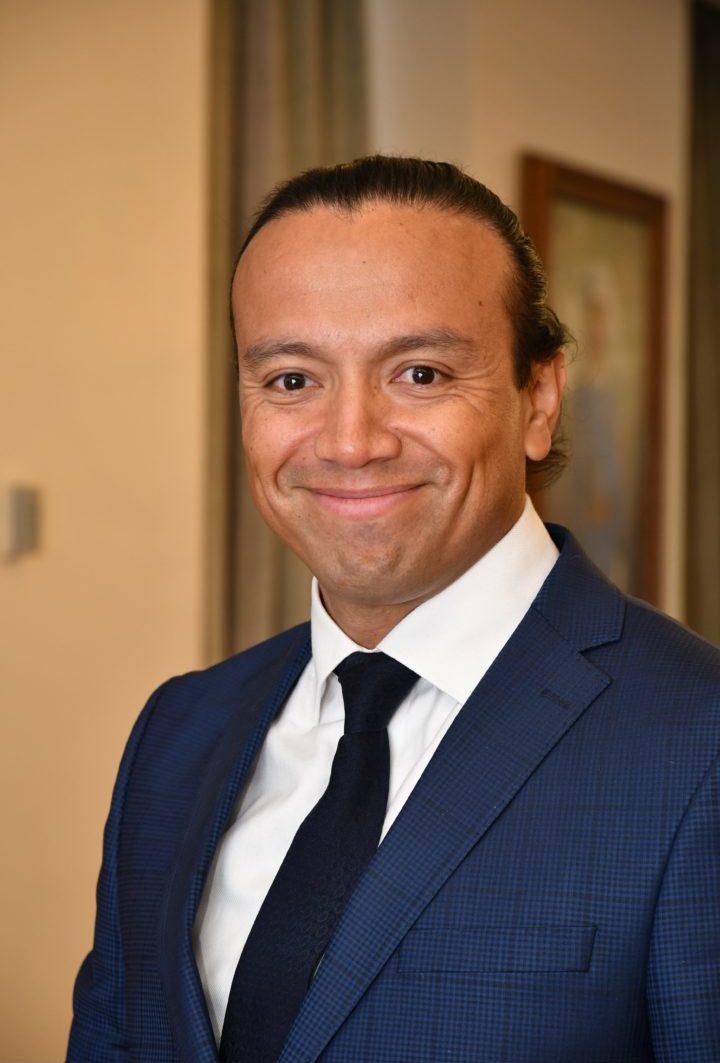Let’s talk about depression

Steve struggled with depression for over 25 years, but his first symptoms started much earlier. Fortunately, his parents and members of his family were always open to discussing mental health issues, which led him to get the help he needed. That did not mean his journey was going to be easy in any way, but it was helpful knowing that he had family and a few close friends he could open up to and discuss his situation.
In 2019, when Steve first talked to us, he said he was far from the depressive state he was in a year before, when his previous episode hit hard. This was thanks to Repetitive Transcranial Magnetic Stimulation (rTMS),a neuromodulation technique.
Seizing the opportunity to share his story, Steve hopes his experience will help others who struggle with mental health disorders along with their loved ones.
5 years on: a new look at reality
Five years after first telling us his story, Steve reached out wanting to update us on his life as he deals with his depression. His in-depth story, presented below, was an accurate depiction of his life at that time, yet things have changed along the way. Steve has since had relapses and experienced various challenges maintaining mental health.
Fostering hope
Recovering from a relapse of major depression is something Steve has experienced many times in the last few years. ‘’Feeling stable for some time is significant because it allows you to really enjoy time spent with the most important people in your life and doing your hobbies,’’ shares Steve. In fact, when Steve is able to focus on his children, family, friends and the bands that he plays in, it helps him feel “normal” again!
“I’m blessed to have my family and friends who are there for me when things aren’t going well and who support me through the most difficult episodes. Just by including me in their daily lives, they allow me to focus on positive things and, most importantly, stay hopeful. I am also blessed to be able to play in multiple bands. Playing music and interacting with other musicians is a very important part of my recovery,” says Steve, emotionally.
There are many treatments available for managing mood disorders, from lifestyle modifications to psychotherapies, medications and neuromodulation techniques.
ECT: Electroconvulsive Therapy
Sadly, Steve suffers from a severe form of major depression that has impacted his life in many ways, including his physical condition and his ability to work. In addition to addressing his lifestyle, he tried psychotherapies and medications. When these did not provide relief, Steve was offered ECT. “The choice of treatment should be decided with the physician, after discussion with the patient and family members,” says Dr. Thomas Milroy, MUHC Psychiatrist.
“ECT is the most rapid treatment for the most severe depressive disorders and is used internationally. We have been providing it at the MGH for over 70 years,” explains Dr. Milroy.
Dr. Karine Igartua, chief of the MUHC Psychiatry Department, adds: “Advances in electroconvulsive therapies now permit more precise dosing of the impulse which minimizes side effects of the treatments. We are looking forward to receiving our new ECT machine in the coming year.”
Although Steve’s story is not representative of everyone’s journey with depression, he is not alone. According to the Government of Canada, more than 50 % of individuals who have had an episode of severe depression experience a recurrence. Nonetheless, there is reason to remain hopeful, since with psychotherapy and/or antidepressant medication, 70 to 80 % of cases can be cured, according to the Association des médecins psychiatres du Québec.
Self-Help steps for depression
Before any treatment is considered, people suffering from depression can take several steps towards self-management. Indeed, as stated by the Canadian Mental Health Association, numerous factors in daily life affect mental health, including the stress of balancing work, health and relationships.
Some lifestyle changes proposed by the Association des médecins psychiatres du Québec (website in French) are:
- Eat well and get enough sleep. Fatigue doesn’t help recovery.
- Get outside every day and expose yourself to natural light.
- Maintain a routine. Get dressed, go out, be active. Idleness aggravates depression.
- Avoid isolation: Choose a few close people to confide in when you are not feeling well and seek their company to talk about your worries or distract yourself. When depressed, we tend to isolate ourselves, but this only gives free rein to negative thoughts.
The Quebec government has also published a self-management support tool that can help.
Dr. Igartua advises: “When self-management isn’t enough, it is important to reach out to your family doctor or other health care providers who can help you choose psychotherapies or medications to help you feel better.”
Steve’s story (2019)
Depression affects everyone differently. I have always been a very productive, social and positive person. I go to work, I play in a few big bands and I enjoy hanging out with friends and family. However when I start falling into a depressive episode, everything starts to fall apart.
My depression was both mentally and physically painful. It came to the point where I found it almost impossible just to get out of bed.
Initially, I wasn’t anxious in social situations. In the early stages, I was able to still go out and see friends and play in the bands, go to work and nobody would even know what I was experiencing.
But when I returned home I would totally crash. As the depression worsened, it got to the point where I wasn’t able to leave my bed or perform even the smallest tasks, such as making a phone call, buy groceries or fill up my car with gas, let alone pay the bills. I just couldn’t do it. The depression had become paralyzing. I entered a very dark place, where hope and dreams took a back seat, procrastination set in, negative thoughts consumed me and I was virtually incapacitated.
Bottom line, it doesn’t only affect you, it has a tremendous impact on your immediate family.
But then, when I received a treatment that worked for me, I was capable of getting back to life, functioning and enjoying all of the things I love. For a good 10 years I was for the most part pretty stable. There were peaks and valleys, but nothing major that could not be controlled with medication. Unfortunately, the medication would not keep the depression at bay. It would return sometimes deeper than ever before. I’ve suffered three brutal depressive episodes in my life and the last one was nothing short of debilitating.
It became increasingly more difficult to work 5 days a week. I would often just call in sick, because I was incapable of facing the day ahead of me. There is no magic recipe for relieving depression. It felt like the only way to overcome it was by trial and error with different combinations of medication.
rTMS therapy: A game-changer
Fortunately, I have a wonderful GP who is always there for me, Dr. Danson and more recently Dr. Margolese, a psychopharmacologist who has expertise in medication used to treat mental illnesses and disorders. He came up with a long term plan that included some tweaks to my existing medication, added new medication, but also a treatment that I had never heard about before: rTMS.
All I knew was that it had something to do with magnetic pulses to the brain. I really had no idea what to expect when I arrived at the hospital. I guess I was expecting to be greeted by something like a scene from the movie Young Frankenstein. As it turned out, it looked nothing like it. It actually felt relaxing. Dr. Barbarosie was the psychiatrist in charge of the team. They explained the treatment in detail, told me what was going to happen and how I was going to feel.
When the device is in action, it feels like a woodpecker is pecking at your head, but it isn’t painful. It feels bizarre at first but then it has a relaxing feeling. In fact, many times when I go there it’s actually the best part of my day. I lay back, take it easy and when I leave I feel a boost of energy.
I started with a first round of 25 to 30 sessions (30 minutes,5 times a week) and now I go there for maintenance therapy, which is twice a week at the moment, but the plan is to reduce the frequency of treatments. rTMS therapy has been an immeasurable game-changer that helped me out of my recent depression this past year.

Steve’s story of depression is not unique
It’s comforting to know that I’m being helped with the latest technology in the field of mental health. As the result of those treatments and my desire to enjoy and get a lot more out of life, I’m doing better almost every day.
My story isn’t unique. Even after 20 years of hardship, most of my friends and colleagues did not know about my struggles with depression. However, this year I chose to open up about it. Some friends were very surprised because I’m very outgoing and often the life of the party and that’s really not the image they have of a person facing depression. If my experience has taught me anything, it is that depression comes in many shapes and sizes and everyone faces it differently.
So far, my life is back on track.
I do sometimes anticipate the next depressive episode because it has been a reality for so much of my life. So I live for the moment and take it one day at a time.
I follow the plan that I’ve set with my doctors and I see how it goes. What’s important is to feel good on a steady basis. I’m not aiming for “great” at the moment, but you know what? Just being able to wake up in the morning and actually feel good about life and the day ahead makes me feel good.
I’m opening up to people and sharing my story with the hope that it might resonate with someone who is suffering from the pain of depression and that makes me feel good too!



